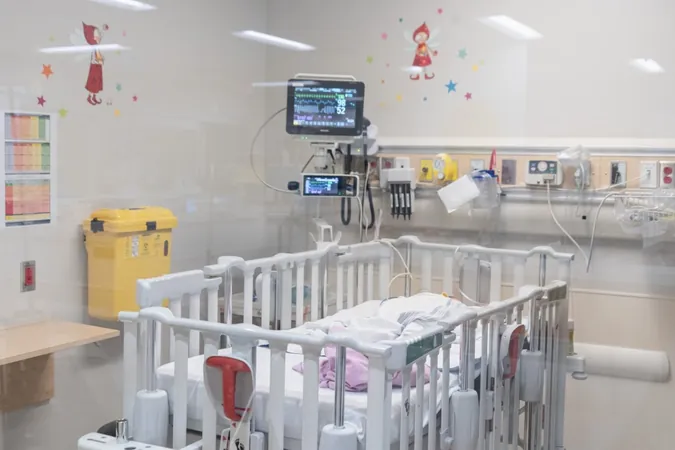
Urgent Alert: Montreal Pediatric Hospitals at Critical Capacity – What Parents Must Know!
2024-11-15
Author: Olivia
Introduction
Montreal's pediatric hospitals are facing a significant surge in patient numbers, prompting urgent pleas for parents to refrain from visiting the emergency department unless their child is facing a serious medical condition.
Reasons for the Surge
Dr. Harley Eisman, the interim medical director of pediatric emergency services at the Montreal Children’s Hospital (MCH), attributes this spike to the convergence of seasonal viruses and an increase in cases of walking pneumonia. Walking pneumonia, a milder form of pneumonia, can manifest with symptoms such as fever, cough, or fatigue, yet it can escalate into more serious scenarios for some children.
Statistics
Recent data reveal that in October, a staggering 50% of all emergency room visits at MCH were for non-critical health issues. During the same period, the hospital's occupancy rate climbed to an alarming 140%. To illustrate the situation further, it has been reported that MCH is seeing more than 200 patients daily, with many presenting fever symptoms yet remaining active and adequately hydrated.
Similar Situation at CHU Sainte-Justine
At another major pediatric facility in Greater Montreal, CHU Sainte-Justine, the situation mirrors that of MCH. More than 40% of emergency visits were linked to minor ailments last month, with that figure rising to 45% recently. The emergency department there also faced capacity issues, peaking at 142%.
Advice for Parents
While hospital officials reassure that no child requiring medical attention will be turned away, parents should brace for potential wait times exceeding six hours for non-emergency cases. Hospital staff advise that common illnesses like mild flu, gastroenteritis, and fever that persists for three to five days may be managed at home.
Dr. Eisman urges parents, “If your child has a fever, it’s usually not an emergency. Consider scheduling a doctor's appointment for the next morning rather than heading to the ER late at night.” He emphasizes that the goal is not to discourage parental concern but rather to encourage alternatives like consulting family doctors or using clinical resources like pharmacy services or the health information line 8-1-1.
When to Seek Emergency Care
Still, there are specific symptoms and conditions that warrant immediate medical attention, including difficulty breathing, excessive lethargy, inability to retain fluids due to vomiting or diarrhea, and fever in babies under three months. Situations involving serious injuries, head trauma, broken bones, cuts requiring stitches, eye injuries, and severe burns should also prompt a trip to the emergency department.
Guidance from Specialists
Determining when to seek emergency care can be challenging for many parents. Dr. Sarah Khan, a pediatric infectious disease specialist at McMaster Children's Hospital, suggests that key warning signs include severe breathing difficulties or unusual skin discoloration. "When in doubt, these red flags mean you should definitely seek help," she advises.
Conclusion
This situation underscores a broader trend in pediatric care during flu season, as hospitals across North America grapple with similar challenges. It's critical for parents to have access to accurate information to make informed decisions about their child's health.









 Brasil (PT)
Brasil (PT)
 Canada (EN)
Canada (EN)
 Chile (ES)
Chile (ES)
 España (ES)
España (ES)
 France (FR)
France (FR)
 Hong Kong (EN)
Hong Kong (EN)
 Italia (IT)
Italia (IT)
 日本 (JA)
日本 (JA)
 Magyarország (HU)
Magyarország (HU)
 Norge (NO)
Norge (NO)
 Polska (PL)
Polska (PL)
 Schweiz (DE)
Schweiz (DE)
 Singapore (EN)
Singapore (EN)
 Sverige (SV)
Sverige (SV)
 Suomi (FI)
Suomi (FI)
 Türkiye (TR)
Türkiye (TR)